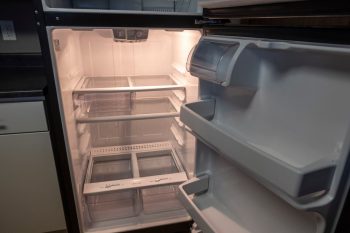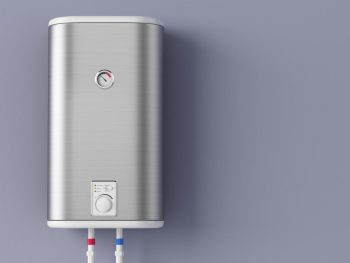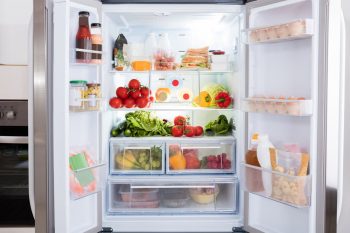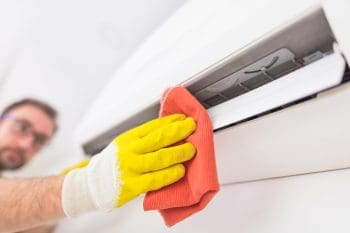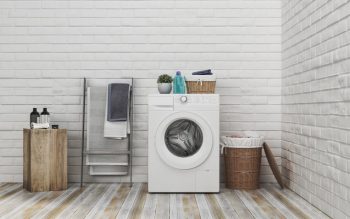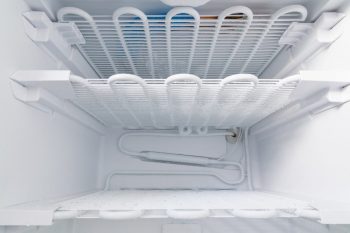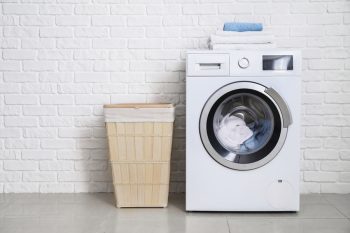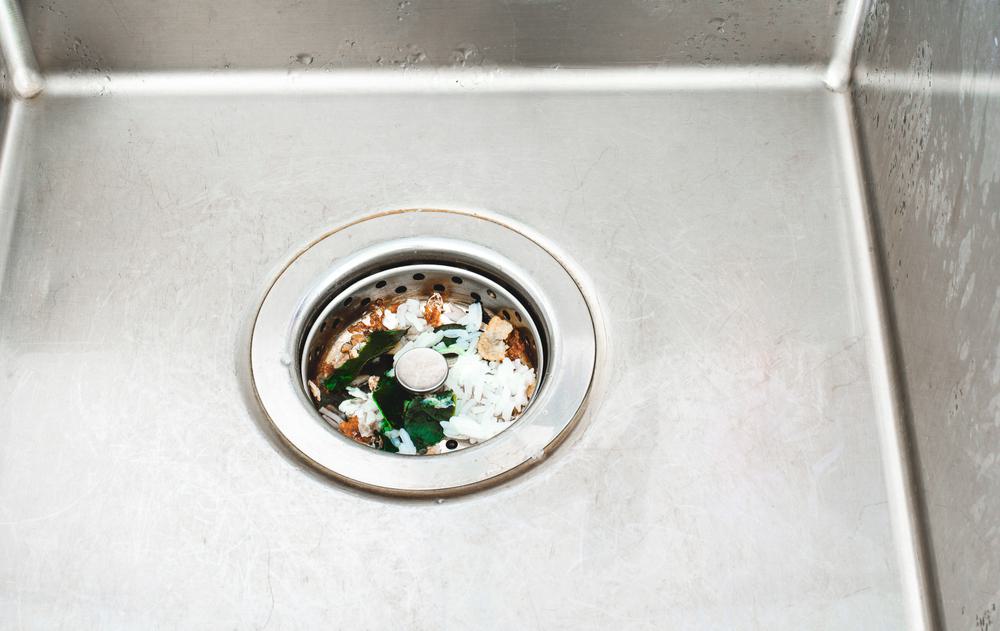
Garbage disposals are essential kitchen appliances that make our lives easier. However, like any other appliance, they can develop issues over time. One common problem that homeowners frequently encounter is the garbage disposal leaking from the reset button. This issue can be a nuisance and lead to potential damage if not addressed promptly.
A garbage disposal might leak from the reset button due to a worn-out internal seal or a crack in the unit’s body. If you notice a leak, turn off the water supply and the power to the unit, then try tightening the connections or resealing the unit. If these solutions don’t work or the damage is significant, it may be time to replace the garbage disposal. Always consider calling a professional for assistance if the problem persists.
Understanding The Problem
A garbage disposal leaking from the reset button is typically due to a busted internal seal or a crack in the unit’s body. The internal seal is designed to protect the motor and prevent leaks, but it can wear out over time, causing water to leak from the base of the unit. Cracks in the body can also lead to leaks, especially if rust has accumulated.
Identifying The Source of The Leak
There are four common areas where leaks can occur: the sink flange, the dishwasher connection, the drain pipe, and the garbage disposal itself. To find the source of the leak, turn off the power to the garbage disposal for safety, dry the outside of the disposal and sink flange, place a stopper in the sink drain, fill the sink with several inches of water, and then wait for a few minutes and observe where the water is leaking from.
Immediate Steps to Take
If you notice your garbage disposal leaking, immediately turn off the water supply to the sink and ensure that the power of the unit is turned off. Try tightening the connections or resealing the unit. If the internal damage is significant, you may need to replace the garbage disposal unit entirely.
Potential Damages
If a leaking garbage disposal is not addressed promptly, it can cause several potential damages to your kitchen and home, including damage to kitchen cabinets and floors, water damage, mold and bacteria growth, damage to the garbage disposal unit, and health hazards.
DIY Solutions
There are a few DIY solutions you can try to fix a leaking garbage disposal. You can try tightening the metal cap that connects the disposal and the dishwasher or resealing the garbage disposal unit. However, if the internal damage is beyond repair, these solutions may only provide a temporary fix, and you might need to replace the entire unit.
When to Call a Professional
It’s necessary to call a professional to fix a garbage disposal leak when the leak is coming from the bottom of the unit, the reset button doesn’t fix the issue, the leak persists or worsens after you’ve tried troubleshooting the issue yourself, or if there is flooding occurring under your kitchen sink.
Preventative Maintenance
To avoid garbage disposal leaks in the future, run the garbage disposal daily, clean the garbage disposal every two weeks, use cold water when operating the disposal, avoid putting hard or fibrous foods down the disposal, perform regular maintenance, check and tighten connections, replace worn-out internal seals, and freshen up the disposal with citrus peels.
Cost of Repair Vs. Replacement
The cost to repair a garbage disposal leak generally ranges between $65 and $150, while a new garbage disposal unit typically costs between $100 and $300. If the garbage disposal is relatively new and the leak is minor, repairing it might be more cost-effective. However, if the unit is old and showing signs of wear, it might be more economical to replace it with a new one to avoid future repair costs.
Conclusion
A leaking garbage disposal can be a significant inconvenience and lead to potential damage if not addressed promptly. By understanding the cause of the leak, taking immediate steps to address the issue, and performing regular maintenance, you can extend the life of your garbage disposal and prevent future leaks. If you are unsure about the source of the leak or how to fix it, it’s always best to call a professional plumber for assistance.
Frequently Asked Questions
What is the reset button on my garbage disposal for?
The reset button on your garbage disposal is a safety feature that shuts off the motor to prevent damage if the disposal becomes overloaded or jammed. If your disposal stops working, pressing the reset button can often get it running again.
How often should I replace the internal seal of my garbage disposal?
The internal seal of a garbage disposal doesn’t have a specific replacement timeline. It should be replaced when you notice your garbage disposal leaking or if it’s not functioning as efficiently as it should.
Can I put citrus peels in my garbage disposal to clean it?
Yes, you can. Citrus peels not only clean the garbage disposal but also help eliminate any unpleasant odors. However, it’s important not to overload the disposal with too many peels at once.
How can I tell if the garbage disposal unit is too old and needs replacement?
If your garbage disposal is frequently jamming, making excessive noise, leaking frequently, or requires frequent resets, it may be time to replace it. Most garbage disposals have a lifespan of about 10-15 years.
What types of foods should I avoid putting into my garbage disposal?
Hard or fibrous foods such as corn husks, bones, fruit pits, onion skins, and coffee grounds can damage the blades of your garbage disposal. Grease and oil should also be avoided as they can build up and clog the disposal.


